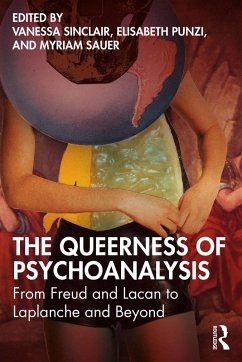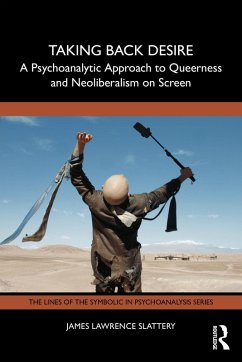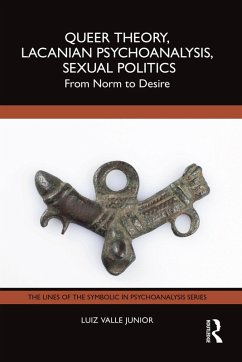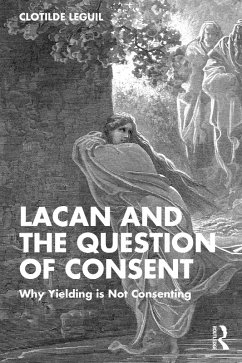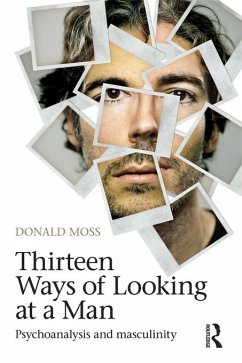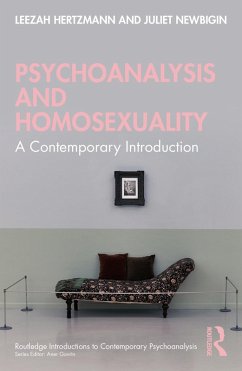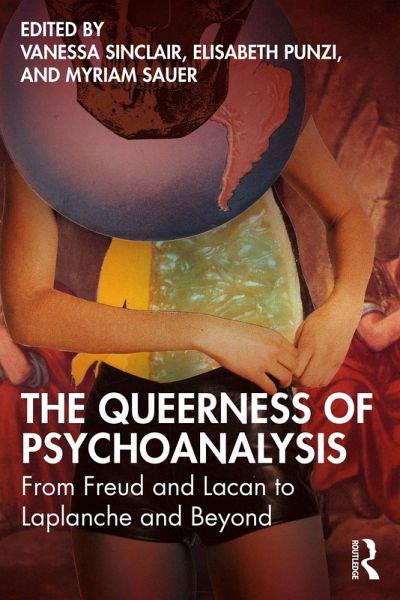
The Queerness of Psychoanalysis (eBook, ePUB)
From Freud and Lacan to Laplanche and Beyond
Redaktion: Sinclair, Vanessa; Sauer, Myriam; Punzi, Elisabeth
Versandkostenfrei!
Sofort per Download lieferbar
29,95 €
inkl. MwSt.
Weitere Ausgaben:

PAYBACK Punkte
15 °P sammeln!
The Queerness of Psychoanalysis: From Freud and Lacan to Laplanche and Beyond is an exploration of psychoanalysis' often complicated and fraught history with thinking about queerness, as well as its multifaceted heritage.Throughout the chapters, the contributors write about psychoanalysis' relationship with queerness, the ways in which queerness is represented in the psychoanalytic archive, and how that archive endures in the present and creates various disruptive effects both within and beyond the clinic. Each chapter from the global cohort of contributors approaches queerness from a differen...
The Queerness of Psychoanalysis: From Freud and Lacan to Laplanche and Beyond is an exploration of psychoanalysis' often complicated and fraught history with thinking about queerness, as well as its multifaceted heritage.
Throughout the chapters, the contributors write about psychoanalysis' relationship with queerness, the ways in which queerness is represented in the psychoanalytic archive, and how that archive endures in the present and creates various disruptive effects both within and beyond the clinic. Each chapter from the global cohort of contributors approaches queerness from a different angle: they consider the literary aspects of queerness' presence in the analytic world; the clinical complexities of working with queer and trans people; metapsychological inclusion and exclusion of queerness, and many other subjects. Taken together these contributions constitute a decisive intervention into the psychoanalytic canon. They are an unabashed demand for accepting and furthering the representation and inclusion of queer, and in particular trans, people within psychoanalysis. It is a call for action to utilize and deepen psychoanalysis' enormous explicatory powers and bring together voices that have so far been denied a unity of expression, while critically reevaluating psychoanalysis' historical relationship to queerness. Each chapter proposes different ways of thinking and writing psychoanalytically, with many of the papers queering the format and forms of expression commonly found in academic writing, through their use of dialogues, conversations, or other experimental forms of writing.
Written almost exclusively by analysts, scholars, and activists who identify as trans and/or queer, this important volume puts theory into practice by centering queer and trans voices.
Throughout the chapters, the contributors write about psychoanalysis' relationship with queerness, the ways in which queerness is represented in the psychoanalytic archive, and how that archive endures in the present and creates various disruptive effects both within and beyond the clinic. Each chapter from the global cohort of contributors approaches queerness from a different angle: they consider the literary aspects of queerness' presence in the analytic world; the clinical complexities of working with queer and trans people; metapsychological inclusion and exclusion of queerness, and many other subjects. Taken together these contributions constitute a decisive intervention into the psychoanalytic canon. They are an unabashed demand for accepting and furthering the representation and inclusion of queer, and in particular trans, people within psychoanalysis. It is a call for action to utilize and deepen psychoanalysis' enormous explicatory powers and bring together voices that have so far been denied a unity of expression, while critically reevaluating psychoanalysis' historical relationship to queerness. Each chapter proposes different ways of thinking and writing psychoanalytically, with many of the papers queering the format and forms of expression commonly found in academic writing, through their use of dialogues, conversations, or other experimental forms of writing.
Written almost exclusively by analysts, scholars, and activists who identify as trans and/or queer, this important volume puts theory into practice by centering queer and trans voices.
Dieser Download kann aus rechtlichen Gründen nur mit Rechnungsadresse in A, B, BG, CY, CZ, D, DK, EW, E, FIN, F, GR, HR, H, IRL, I, LT, L, LR, M, NL, PL, P, R, S, SLO, SK ausgeliefert werden.




